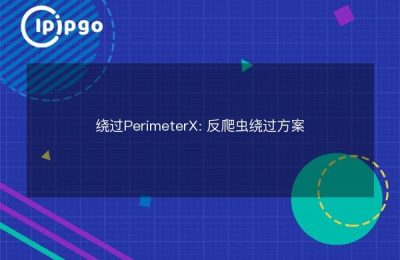
Why do I need a proxy IP interface?
In scenarios that require batch processing of network requests, the direct use of local IPs can easily trigger the protection mechanism of the target website. For example, when crawler engineers collect public data, frequent use of the same IP address will be recognized as abnormal traffic. At this time, it is necessary to dynamically switch the exit address through the proxy IP interface to simulate the access of real users in different regions.
Take the API interface provided by ipipgo as an example, developers can get the latest available proxy IPs in real time, which come from real home broadband in more than 240 countries and regions around the world, especially suitable for business scenarios that require a high degree of anonymity. Dynamically obtaining IPs through the API is more flexible than static proxies and less likely to be blocked.
Python environment preparation
Before you start, make sure you have installed the requests library (to handle HTTP requests) and the json library (to parse returned data). It is recommended to create a virtual environment to avoid dependency conflicts:
pip install requests
After signing up for a ipipgo account, find the API access documentation in the console. Each user will get the exclusiveAPI keyrespond in singinginterface addressThese two parameters need to be memorized for subsequent calls.
Proxy IP Calls in Three Steps
Here we demonstrate the most commonly used way of obtaining dynamic residential proxies:
Step 1: Initiate a fetch request
import requests
api_url = "your interface address"
secret_key = "Your API key"
params = {
"key": secret_key,
"count": 1, Get the number of IPs
"protocol": "http", supports http/https/socks5
"country": "us" country code
}
response = requests.get(api_url, params=params)
Step 2: Parsing the returned data
if response.status_code == 200: data = response.json()
data = response.json()
if data["code"] == 0: success_status_code
proxy_ip = data["data"][0]["ip"]
proxy_port = data["data"][0]["port"]
else.
print("Error message:", data["msg"])
else: print("Error message:", data["msg"])
print("Request failed, status code:", response.status_code)
Step 3: Initiate a request using a proxy
target_url = "https://example.com"
proxies = {
"http": f "http://{proxy_ip}:{proxy_port}",
"https": f "http://{proxy_ip}:{proxy_port}"
}
try.
res = requests.get(target_url, proxies=proxies, timeout=10)
print("Request successful, content length:", len(res.text))
except Exception as e.
print("Request Exception:", str(e))
Examples of practical application scenarios
Take the example of a commodity price monitoring system, which needs to collect quotation information from different regions every hour. We can design the process like this:
| move | manipulate | ipipgo Features |
|---|---|---|
| 1 | Get German residential IPs via API | Support for precise country code assignment |
| 2 | Using a proxy to access a target website | Automatic IP authentication mechanism |
| 3 | Automatic IP change in case of exception | Dynamic IP pools updated in real time |
Frequently Asked Questions
Q: What should I do if the acquired IP expires immediately?
A: It is recommended to get a new IP before each request. ipipgo's IP pool contains 90 million+ resources and supports high-frequency replacement.
Q: How can I increase the success rate of my requests?
A: ① set a reasonable timeout time (5-10 seconds is recommended) ② automatically retry after capturing an exception ③ switch between different protocol types for testing
Q: What if I need to use multiple country IPs at the same time?
A: You can pass in different country codes cyclically in the API request parameters, or use ipipgo's smart rotation function to assign them automatically.
Debugging Tips and Precautions
1. It is recommended to start withSingle-access modelTest connectivity, then change to batch fetch
2. Note whether the target site has protocol restrictions (e.g., HTTPS must be used)
3. Important operational proposals to add a fail-over mechanism:
retry_count = 0
while retry_count < 3:: retry_count = 0
try.
Business request code
break
except: retry_count += 1
retry_count += 1
Change to new IP
By using ipipgo's proxy interface wisely, developers can easily build a stable web request system. It is recommended to fully utilize theFree TrialFunctions are tested for business and the most suitable type of agent is selected based on actual needs.








